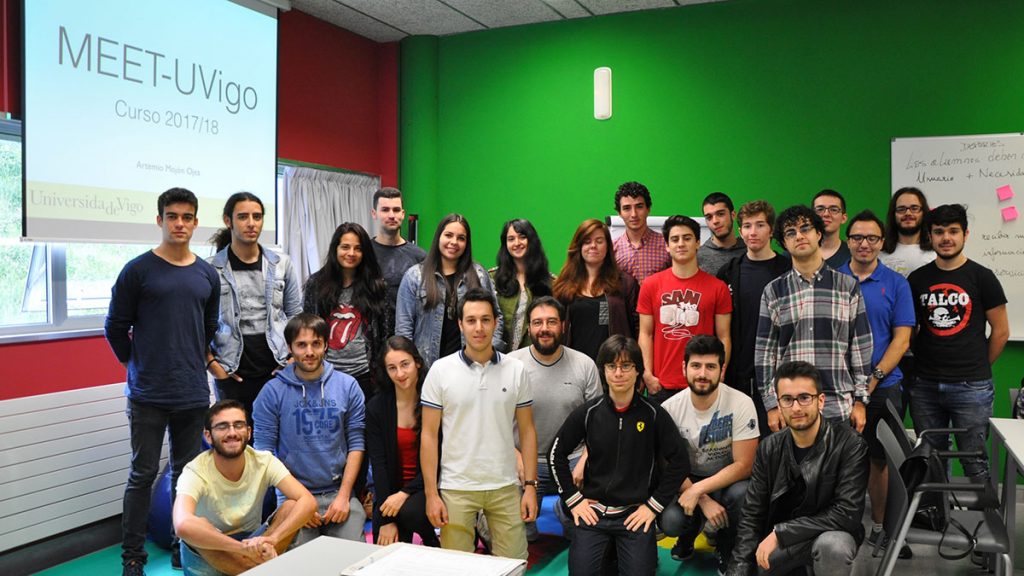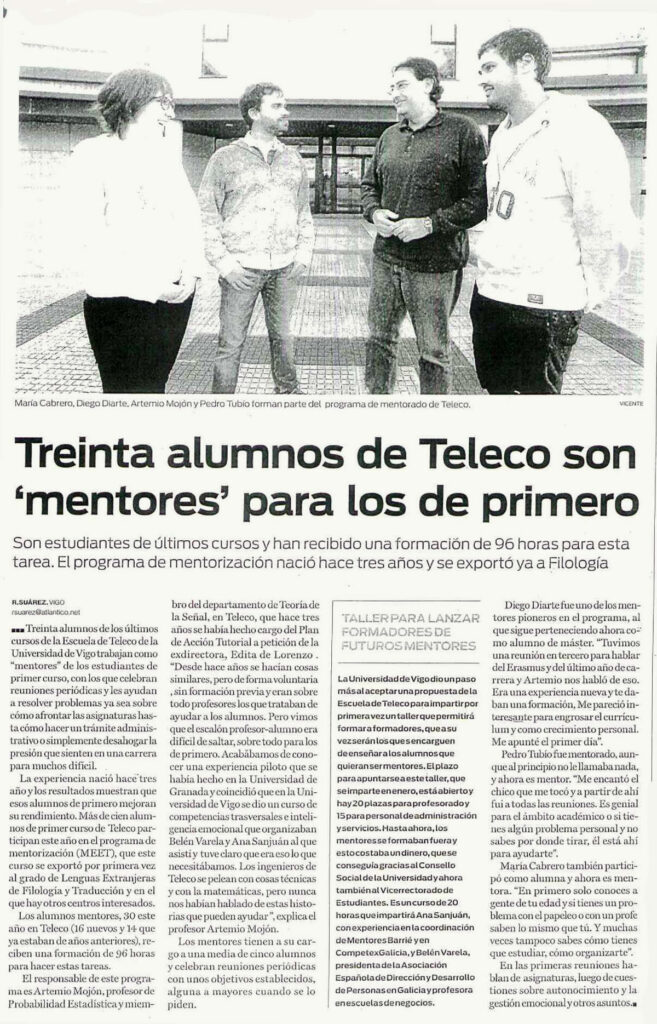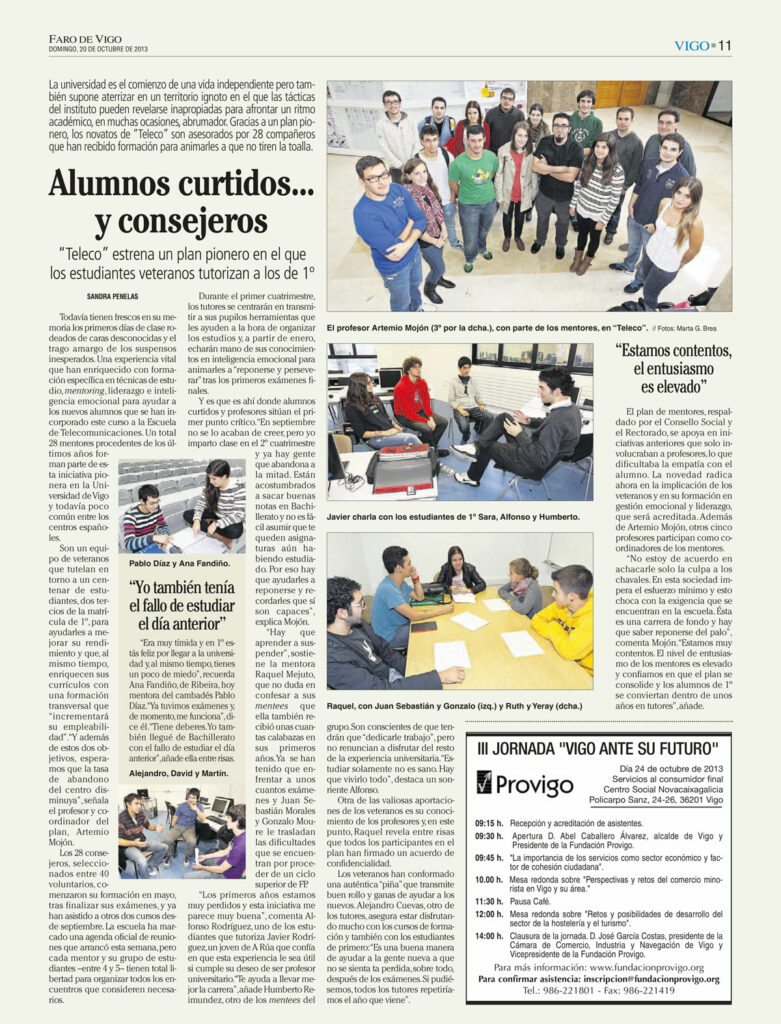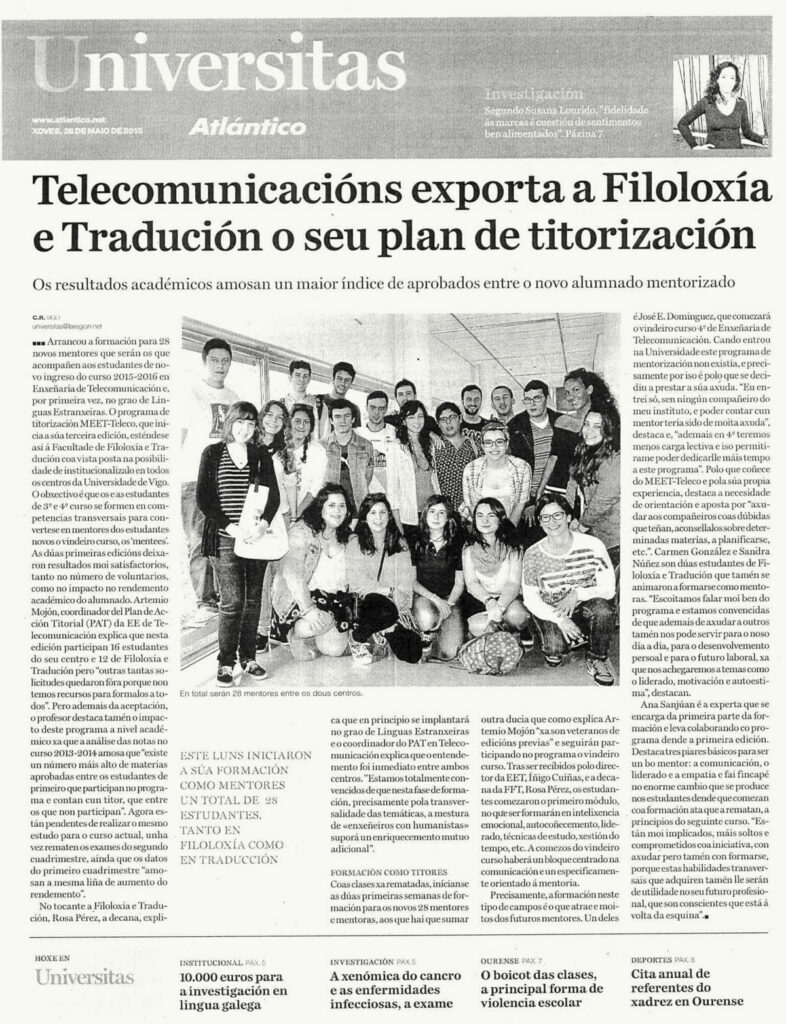It is a formal mentoring program in which students from advanced courses lend a hand to newcomers in their adjustment to university life.
It was born in our School in September 2013 under the coordination of our colleague Artemio Mojón Ojea. Since then, it has been consolidated as one of the activities that give identity to the center, being positively highlighted in the evaluations of different accreditation processes of the Degree.
Some news (click to zoom in):




